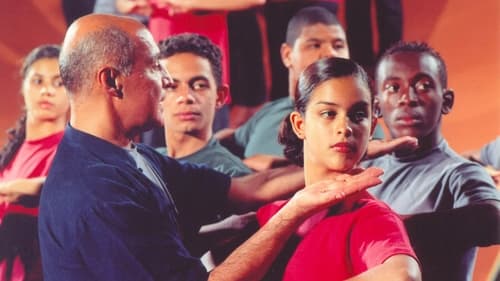
Writer
O diplomata brasileiro José Bustani foi o primeiro diretor-geral da Organização de Proibição de Armas Químicas. Com sua gestão imparcial, de 1997 a 2002, estava prestes a alinhar o Iraque à instituição quando ocorreu o ataque às Torres Gêmeas, em 11 de setembro de 2001. Os Estados Unidos, que dois anos depois invadiriam o Iraque, passaram a pressionar Bustani para que se demitisse. Ele, por sua vez, tentou provar que a justificativa para a invasão do Iraque – a de que o país possuiria armas de destruição em massa – era uma farsa, o que lhe custou caro. Hoje, aposentado no Rio de Janeiro, Bustani se satisfaz com sua primeira paixão: a música.

Director of Photography
Sixty-six adolescents, residents of Favela da Maré, were selected to participate in a dance show led by the choreographer Ivaldo Bertazzo, which incorporated their own daily experiences. Ten years later, directors David Meyer and Helena Soldberg search for some of the participants of this experience.

Producer
Sixty-six adolescents, residents of Favela da Maré, were selected to participate in a dance show led by the choreographer Ivaldo Bertazzo, which incorporated their own daily experiences. Ten years later, directors David Meyer and Helena Soldberg search for some of the participants of this experience.

Director
Sixty-six adolescents, residents of Favela da Maré, were selected to participate in a dance show led by the choreographer Ivaldo Bertazzo, which incorporated their own daily experiences. Ten years later, directors David Meyer and Helena Soldberg search for some of the participants of this experience.

Director
In 1969, Fernando Gabeira was among terrorists who kidnapped Charles Burke Elbrick, then the U.S. Ambassador to Brazil. Eventually Gabeira was captured and tortured before being exiled from his homeland for eight years. He talks candidly about his experiences in captivity as well as the abduction and the motivation behind choosing Elbrick.




